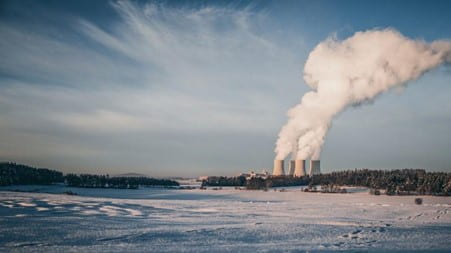
November 15, 2022
“Caution advised: Protest on Vaclavske namesti” read the subject line of NYU Prague’s mass email to students and faculty on September 28th. While the Czech Republic borders on an eight-month-long war, classes continue despite pro-Russia protesters lurking. Tensions are heightened by both the political divide over the war and the resulting energy crisis.
Czech citizens have seen energy prices rise by an estimated 17%, prompting many protests like the one late September in the middle of the busy Wencesla Square. The EU’s reliance on natural gas predominantly, about 90%, comes from outside of its countries, with 43.4% from Russia. The Czech Republic has seen the highest increase of any country in the EU, forcing residents to find ways to cut down on costs.
The energy crisis has made people politically aware of the cost of government’s pro-Ukraine stance, dividing some over the economics of supporting the war. Similar to the United States, Czech politics have become increasingly polarized. Comparing the political climate over the last few years, a 2020 report found that 81% of citizens felt a greater political divide.
The demonstrators in late September included the anti-government group, Czech Republic First. For years these far-right and far-left extremists have advocated pulling out of the EU. Now, they have added another agenda: demanding the Czech Republic cut its own deal with Russia for gas supplies. Protesters also support anti-immigration laws, specifically against Ukrainian refugees seeking shelter in the Czech Republic during the war.
With increased energy prices, the protesters’ movements have garnered more support from certain socioeconomic groups. Amongst political uncertainty, the one constant is citizens’ economic hardships. Charles University student Michelle Dvořáková understands that thinking but also worries about the social costs. “So many low-income families are starting to sympathize with them because they’re advocating for lower costs, for reducing inflation,” she said. “Everyone wants that, but there’s no way to achieve that without the cost of human lives.”
The major energy companies, ČEZ and PRE, have announced steep increases including a 50% increase on gas. Even with decreased energy consumption, electricity bills have risen. Dvořáková saw an almost 20 percent increase in rent for her family in the past year. Even before the crisis, she said, “We are very environmentally conscious.” Yet, their energy bill has risen 25%. “We could pay it, but you need to take it from somewhere or you just need to kind of give up something,” she said “So then like, no vacation or you know, whatever.”
Day-to-day lifestyle changes have impacted most of the nation as the energy crisis continues to affect prices in electricity, food, and more. “By October we would be kind of heating a little bit, but we decided not to,” said Tomas Klvana, a NYU Prague foreign affairs journalist professor. “You can always take another sweater.”
Food inflation has reached its highest rate of 21% as of September 2022; previously it had averaged 2.55% according to Trading Economics. As a result, restaurants have been suffering from a decline in business as they markup food prices to match the inflation. Many low- and middle-income people have stopped going to restaurants. “Imagine you earn (CZK) $1,000 per month, right? You just don’t go to restaurants anymore,” says Klvana who still dines out but admits he thinks twice before ordering. “Am I really thirsty? Maybe I don’t need the drink.”
Though the Czech ministry has created an energy subsidy, only winter will tell if it will be enough.
